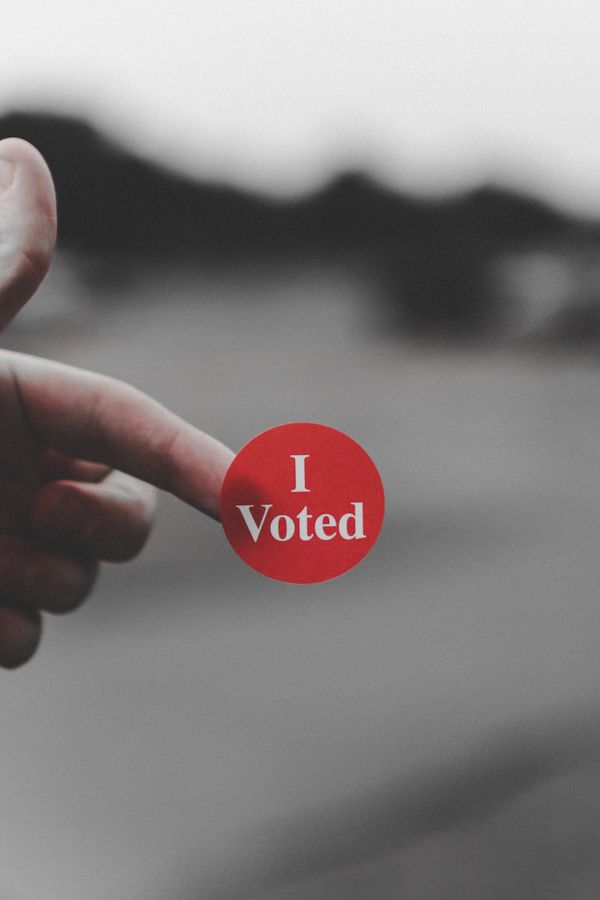Domestic violence is any behavior used to gain power and control over another person by using fear and intimidation. It can happen to couples whether they are married or living together or not. Domestic violence does not discriminate. It doesn't matter if you are Republican or Democrat, or what gender you identify as. It can happen to anyone of any socioeconomic background, race, and age. Data from the CDC suggests 1 of 6 homicides are committed by the victim's intimate partner, and about half of female homicide victims are killed by their current or former partner.
When I asked my friends how they would define domestic violence, the vast majority limited it to people who were married and only mentioned physical abuse. While some mentioned a few intense arguments being a part of the definition, and only two people mentioned verbal abuse. Physical abuse remained the main part of their definition.
Physical abuse is not the only type of abuse. Other forms of abuse include, emotional, sexual, financial, and digital.
Physical abuse is intentional unwanted contact including throwing items at you, grabbing and keeping you from walking away, etc.
Emotional abuse is non-physical behaviors such as gaslighting, intimidation, ghosting, isolation, stalking, blaming you for their abusive behavior, embarrassing you, controlling what you wear, and putting you down.
Sexual abuse is any action that pressures or coerces someone to do something sexually they do not want to do. Just because it wasn't violent or they didn't resist doesn't mean it isn't abuse or assault.
Financial abuse is when your partner controls your financial situation.
Digital abuse is using technology to stalk, harass, or intimidate a partner. Often it is a form of emotional abuse that takes place online.
Domestic violence and sexual assault is not just a women's issue. One of nine men experience violence from an intimate partner in their lives. One of six men have experienced sexual violence during their lives and 1 of 6 men were sexually abused before the age of 18. Also, 2.1% of men have been stalked by a partner during their lives.
It can happen to teenagers too. One out of three teens falls victim to physical, emotional, verbal, or sexual abuse from a dating partner, which exceeds any other form of youth violence. Women ages 16-24 experience triple the national average of intimate partner violence. When the pattern of intimate partner violence is established in adolescence, the severity of it in adulthood is even greater.
So why isn't anyone talking about it? Because it makes them uncomfortable and they do not know how to handle it. Don't believe me?
I am one out of three teens who experienced sexual or physical abuse or threats from their intimate partner in a year.
I am one out of five women who are survivors of rape.
I am one out four women who were sexually abused before 18.
I am part of the 10.7% of women who have been stalked by an intimate partner in their lifetime.
I am only 21 years old.
I was 16 years old when I was physically, emotionally, sexually, and digitally abused by my boyfriend at the time. I was lucky enough to escape after nine months of abuse. However, that is when I joined those 10.7% of women who have been stalked by an intimate partner.
At 18 I was sexually assaulted for a second time. My assailant used intimidation tactics and violence to keep me silent. I finally came out and told my friends what had happened, and lost my entire friend group because they didn't know how to deal with it.
How do you feel after reading that? Let me take a wild guess, uncomfortable, shocked, uneasy, and maybe a few of you are wondering why I would admit any of that.
In the news media, when we hear domestic violence and sexual assault advocacy, we think feminism and liberalism.
But what if I told you I am a Republican woman who voted for and still supports Donald Trump?
When interviewed for a "Glamour Magazine" article, the topic of conversation was the fact that I could be a Republican and be an advocate for those who have been abused and sexually assaulted. Apparently that just isn't allowed. I had a friend tell me in high school I was asking for it since I was a Republican.
Why would I tell my story?
I want to be a voice for not only Republicans but an advocate for all men and women who have experienced domestic violence and sexual assault. There is a huge information gap and an even bigger lack of true awareness about domestic violence in this country. The numbers won't stop growing until one person doing something turns into all of us doing something.
So why shouldn't I share my story?



















